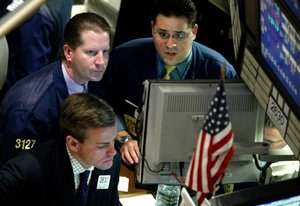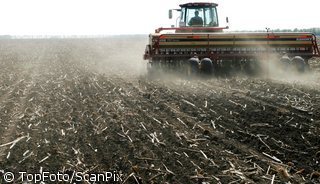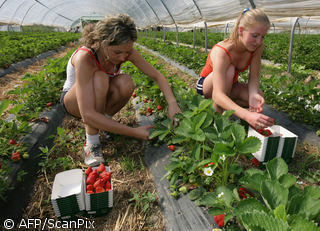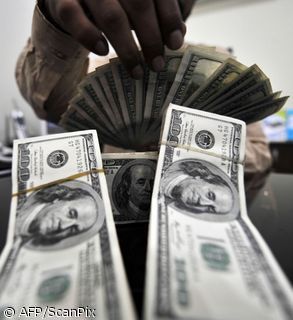The economies of central Europe face difficult times in coming years owing to a slowdown in the pace of reforms and a labour shortage, a senior OECD official said on Monday
Published:
5 December 2004 y., Sunday
The economies of central Europe face difficult times in coming years owing to a slowdown in the pace of reforms and a labour shortage, a senior OECD official said on Monday.
Speaking at a meeting here of central European chief financial officers, OECD economic adviser Patrick Lenain said that although the region's growth rates had risen to about 4.0 percent and the short-term outlook for the region was good, the longer-term outlook was less positive.
"Even rising oil prices and the falling dollar should not prevent these countries growing by around 4.0 percent in 2004 and 2005. But catching up in the medium-term will not happen automatically. I hope central Europe will have a great future but this is not for certain and is not guaranteed," he said.
"The prospect of joining the EU was an important driver for reform and levelling the playing field in the region. But the pace of reform has since slowed down and we need another carrot for dynamic growth," he added.
A number of barriers and obstacles stood in the way of central Europe catching up with western Europe living standards, he said.
A critical problem faced by the central Europe countries of Poland, Hungary, the Czech Republic and Slovakia was their ageing populations, Lenain warned.
Šaltinis:
AFP
Copying, publishing, announcing any information from the News.lt portal without written permission of News.lt editorial office is prohibited.
The most popular articles
 In another move to strengthen the financial system, the Commission is proposing controls on credit rating agencies - private companies that evaluate financial risks for investors.
more »
In another move to strengthen the financial system, the Commission is proposing controls on credit rating agencies - private companies that evaluate financial risks for investors.
more »
 Monday 10 November saw a large report land on the desk of MEPs in the Budgetary Control Committee.
more »
Monday 10 November saw a large report land on the desk of MEPs in the Budgetary Control Committee.
more »
 EU wants G20 meeting to pave the way for reform of the international financial system.
more »
EU wants G20 meeting to pave the way for reform of the international financial system.
more »
 New Yorkers reflect on the election of Barack Obama as the 44th President of the United States.
more »
New Yorkers reflect on the election of Barack Obama as the 44th President of the United States.
more »
 The ability of the EU's common agriculture policy (CAP) to cope with the challenges of affordable food and climate change was discussed in Brussels 3-4 November.
more »
The ability of the EU's common agriculture policy (CAP) to cope with the challenges of affordable food and climate change was discussed in Brussels 3-4 November.
more »
 European Union economic growth should be 1.4% in 2008, half what it was in 2007, and drop even more sharply in 2009 to 0.2% before recovering gradually to 1.1% in 2010 (1.2%, 0.1% and 0.9%, respectively, for the euro area).
more »
European Union economic growth should be 1.4% in 2008, half what it was in 2007, and drop even more sharply in 2009 to 0.2% before recovering gradually to 1.1% in 2010 (1.2%, 0.1% and 0.9%, respectively, for the euro area).
more »
 There are an estimated 4-8 million immigrants working illegally in the European Union.
more »
There are an estimated 4-8 million immigrants working illegally in the European Union.
more »
 Hit by economic turmoil and the sharp global downturn, growth in the EU slows almost to a halt.
more »
Hit by economic turmoil and the sharp global downturn, growth in the EU slows almost to a halt.
more »
 The top priority is to cushion the impact of the financial crisis on jobs, purchasing power and prosperity of EU citizens.
more »
The top priority is to cushion the impact of the financial crisis on jobs, purchasing power and prosperity of EU citizens.
more »
 The International Monetary Fund has approved short-term financing to help emerging market economies weather the global financial storm.
more »
The International Monetary Fund has approved short-term financing to help emerging market economies weather the global financial storm.
more »